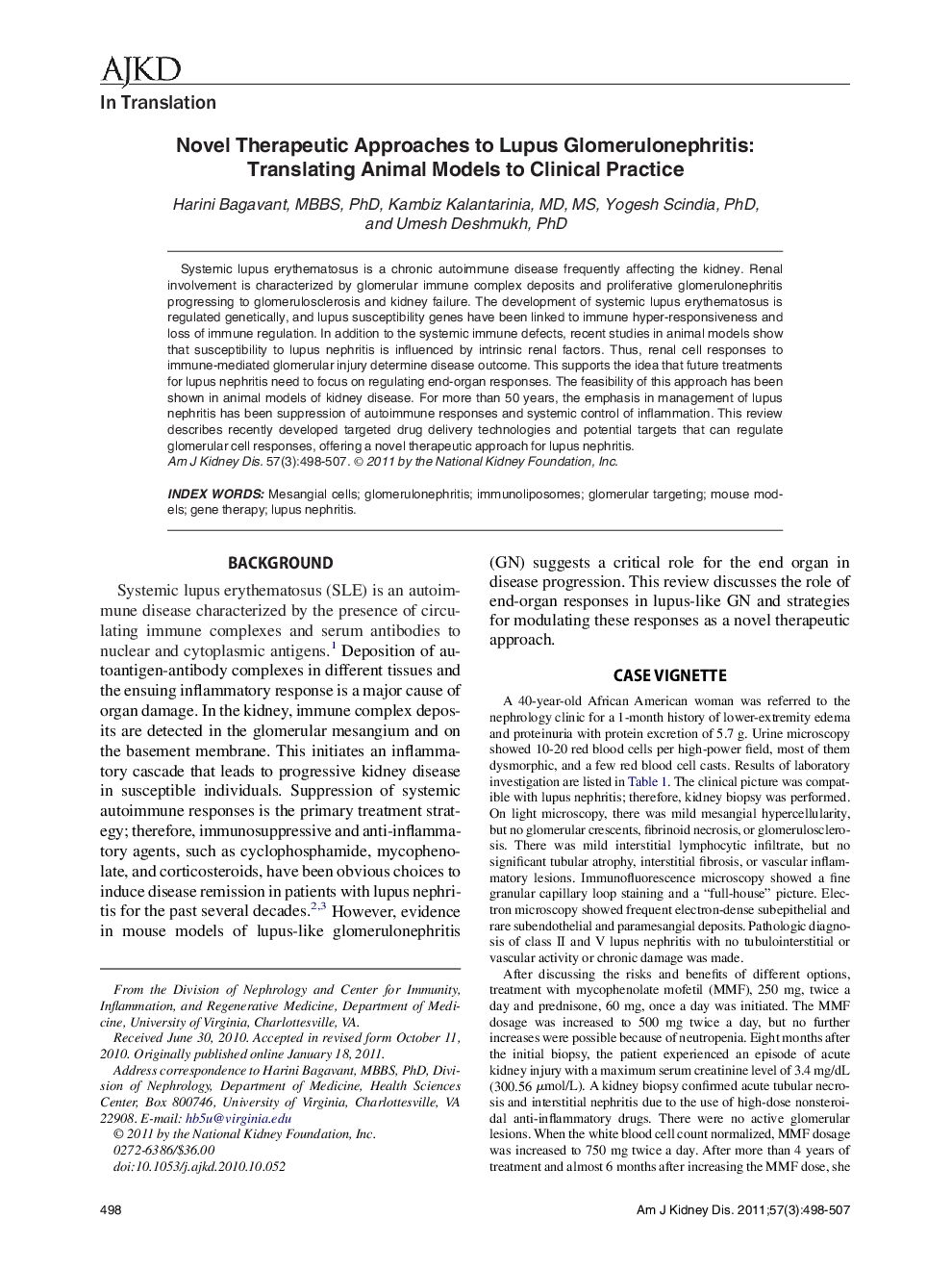| Article ID | Journal | Published Year | Pages | File Type |
|---|---|---|---|---|
| 3848754 | American Journal of Kidney Diseases | 2011 | 10 Pages |
Abstract
Systemic lupus erythematosus is a chronic autoimmune disease frequently affecting the kidney. Renal involvement is characterized by glomerular immune complex deposits and proliferative glomerulonephritis progressing to glomerulosclerosis and kidney failure. The development of systemic lupus erythematosus is regulated genetically, and lupus susceptibility genes have been linked to immune hyper-responsiveness and loss of immune regulation. In addition to the systemic immune defects, recent studies in animal models show that susceptibility to lupus nephritis is influenced by intrinsic renal factors. Thus, renal cell responses to immune-mediated glomerular injury determine disease outcome. This supports the idea that future treatments for lupus nephritis need to focus on regulating end-organ responses. The feasibility of this approach has been shown in animal models of kidney disease. For more than 50 years, the emphasis in management of lupus nephritis has been suppression of autoimmune responses and systemic control of inflammation. This review describes recently developed targeted drug delivery technologies and potential targets that can regulate glomerular cell responses, offering a novel therapeutic approach for lupus nephritis.
Related Topics
Health Sciences
Medicine and Dentistry
Nephrology
Authors
Harini MBBS, PhD, Kambiz MD, MS, Yogesh PhD, Umesh PhD,
